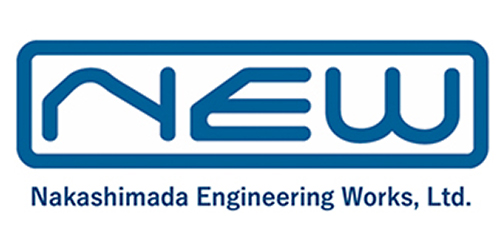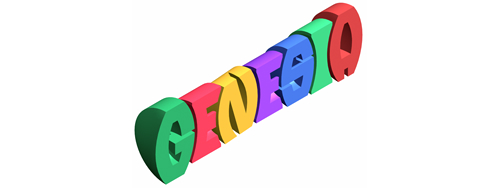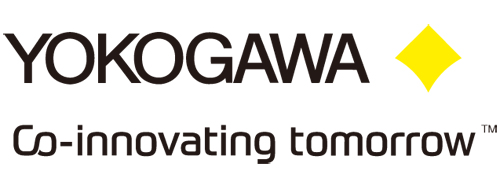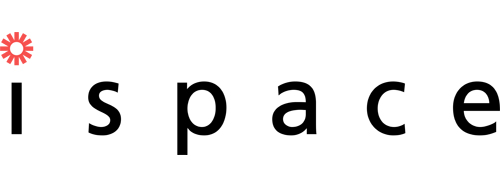Dear members of UNISEC Japan
In 2003, when the University Space Engineering Consortium (UNISEC) started as an NPO, I was in the first year of the master’s program at the Space Systems Dynamics Laboratory (Tetsuo Yasaka / Toshiya Hanada Laboratory) of the Department of Aeronautics and Astronautics in the Graduate School of Engineering at Kyushu University. UNISEC was established with the goal of “making space a place for young people to play active roles” with Professor Tetsuo Yasaka as chairman. In the 17 years since, UNISEC has been led by several presidents to great success, and has made significant progress and had many achievements. This time, I will take over the role of chairman as the fifth to do so and the first as a student member graduate. I will put my utmost effort into laying the foundation for the next 20 years of this community. I would like to thank you all for your continuous support.
UNISEC is a non-profitable organization (NPO) established with the purpose of supporting the “realization of practical space engineering activities,” such as the development of small satellites and rockets. Currently, UNISEC has about 600 student members and about 300 individual and corporate members, and 79 organizations from 58 universities and technical colleges are affiliated with it. UNISEC’s vision is shared around the world, beginning with the announcement of the “Vision 2020-100” in 2011 and the establishment of UNISEC-Global in 2013. Currently, UNISEC-Global has 20 local chapters and 54 points of contact. In recognition of these international activities, UNISEC-Global was approved as a permanent observer by the international Committee on the Peaceful Uses of Outer Space (COPUOS) in 2017. UNISEC also received the status of a “certified non-profitable organization” by the Tokyo Metropolitan Government in 2018, and has strengthened its activity base since. Furthermore, we are investing in international space education activities as well, through the establishment of MOUs with the International Space University and the Egyptian Space Agency. Under these circumstances, the original UNISEC has been positioned as UNISEC-Japan and its activities have attracted the attention of the world. As such, it is required to maintain a leading role and a clear vision. The organization of UNISEC-Japan consists of a board of directors with 19 members, an international committee, an advisory board for the international committee, various subcommittees and working groups, UNISON (UNISEC Student Organization), and UNISAS (UNISEC Alumni Association). Many of UNISEC’s activities are run primarily by UNISON, and the role played by UNISON is very important. Please see the remarks by former President Professor Yasuyuki Miyazaki regarding these relationships. The student members of UNISON are expected to play an active role in international space engineering activities.
As the first chairperson Professor Tetsuo Yasaka said, UNISEC was launched with three principles: 1. Human resource development focusing on collaboration and growth, 2. Technological development not bounded by accepted practice nor precedent, and 3. Outreach that broadens the base of space development. After that, under Professor Shinichi Nakasuka, the second chairperson, the policy to put a particular emphasis on human resource development and technological development was enacted, focusing on cultivating human resources and space technologies to make highly reliable and well-working space systems. Through this “Hodoyoshi Project” led by Professor Nakasuka, the technological level of microsatellites in particular has advanced dramatically, the domestic space equipment supply chain has been enhanced, and a wide variety of spin-off projects have been launched. However, the mutual support activities between UNISEC member organizations also diminished, and interaction between researchers who are seriously aiming for space dwindled, possibly due, ironically, to the fact that space activities were becoming more commonplace. The situation at that time is described in the message of Professor Haruki Nagata, the third chairperson, who launched the policy of returning to the original mission of UNISEC to “aim for space seriously.” In this way, UNISEC has overcome major conflicts to get to this point, and even now it is not necessarily “smooth sailing.” Therefore, we must recognize that it is we, ourselves, who will determine the existence and value of UNISEC in the future.
In 2003, when UNISEC started as an NPO, the Institute of Space and Astronautical Science, the National Aerospace Laboratory, and the National Space Development Agency were integrated to form the Japan Aerospace Exploration Agency (JAXA). The year 2003 was also the year when the University of Tokyo and Tokyo Institute of Technology launched first two CubeSats, ahead of the rest of the world. In the 17 years since then, microsatellites have been put into commercial use worldwide, and the situation has changed completely with the emergence of numerous mega-constellation concepts and deep space exploration programs. It is not an exaggeration to say that this development is intertwined with the history of UNISEC, as evidenced by the fact that there are well over 50 microsatellites from this group. These days, crewed lunar exploration – such as the ARTEMIS program – has again come to the forefront of many space agencies’ goals. It seems the times undergo a major transformation once every few decades, yet the importance of space engineering activities in society continues to increase, now more than ever.
The activities of UNISEC are also changing, albeit gradually, in the midst of such times. In addition to supporting our member universities and technical colleges, we are proactively starting various research activities by obtaining consignment contracts. In addition, as contributions to UNISEC-Global, UNISEC-Japan is providing opportunities such as the CanSat Leader Training Program (CLTP), the Mission Idea Contest (MIC), and education and training using a microsatellite development training kit called HEPTA-Sat. UNISEC-Japan is also contributing to the standardization of the microsatellite interfaces. Furthermore, utilizing its international network, UNISEC is raising awareness of the space debris problem through the Debris Mitigation Competition, engaging in education activities on concrete response guidelines around this topic using the “A Handbook for Post-Mission Disposal of Satellites Less than 100 kg,” established in cooperation with the study group of The International Academy of Astronautics (IAA), and undertaking a survey on opportunities for Japanese support for emerging space nations. In addition, some UNISEC member organizations have independently implemented educational programs for emerging countries and have built effective relationships with many institutions, and these activities are highly regarded as one of Japan’s important contributions to the international community. The fact that we received the Minister for Foreign Affairs Award at the 4th Space Exploration and Utilization Awards shows that the importance of our activities is widely recognized. It is my belief that the existence and energy of such UNISEC activities has led to the continued abundance of in-orbit demonstration opportunities for microsatellites, especially in Japan.
Here, I would like to recall the words of the first chairperson: “Judging the value of UNISEC is not difficult – it is whether the vitality and enthusiasm of the students continue to fascinate the participants.” With this in mind, I believe we can still increase the value of UNISEC by fostering the enthusiasm of students. And for this purpose, I would like to propose the following activities.
- 1) Setting new frontier development goals and promoting the practical development, utilization, and exploration of space
- Due to the influence of the ARTEMIS program and the enhancement of commercial launch vehicles, lunar exploration by micro-spacecraft will soon become a reality. Now that low Earth orbit microsatellite technology has reached a certain level of maturity, why not aim for a further frontier? I see lunar exploration as the inevitable next step in microsatellite R & D activities. Let’s realize more miniaturized, high performance, and low power on-board components, and pioneer a new frontier as the whole of UNISEC-Japan. Let’s turn the longing for space that we had when UNISEC was established towards the moon and the planets beyond.
- 2) Enhancing cooperation in space engineering technologies
- In recent years, propulsion devices that can be mounted on microsatellites have become available, removing restrictions on mobility in outer space. Until now, rocket technology has been recognized and developed as a means of launching from the Earth to space, and I feel that the level of technological development in our member organizations has increased. As mentioned above, now that lunar and planetary exploration has become a reality with micro-spacecraft, I think it is necessary to consider new areas of collaboration and cooperation between microsatellites and rocket technology, regardless of the conventional delineations between systems. In addition to this, it is important to clarify the direction of the technologies required for future space development, utilization, and exploration, especially in areas of electric propulsion, rovers, and advanced space architectures, etc., and to promote cooperation between member organizations.
- 3) Assuring the level of space technology
- As one of UNISEC’s functions, I would like to establish a mechanism to evaluate and assure the level of space engineering technology in the activities of member organizations. As mentioned above, UNISEC not only facilitates mutual support between member organizations, but also acts proactively, and by doing so, we can foster continuous innovation. I would like to promote the horizontal development of technical knowledge in UNISEC member organizations, assure the technical level to make “highly reliable and well-working space systems,” improve the probability of mission successes, and lay the foundation for space education in emerging countries.
I believe that UNISEC is an indispensable organization for Japanese space development. Although the direction and technical interests of each individual member may be different, we are united in our ambition to better ourselves and to contribute to the advancement of space engineering as a whole, with the mission of cultivating a new frontier of knowledge through cooperation in the form of competition.
Although we are in a challenging environment due to COVID-19, let’s continue our constructive activities with ingenuity.
Thank you very much.

































